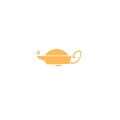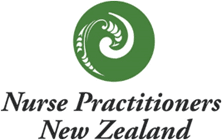Please click on each speakers photo to see their bio.

Emma MacFarlane NP Family Planning
Emma MacFarlane NP Family Planning
Emma graduated from the University of Otago with a BSc (neuroscience) in 1999 before training as a Registered Nurse gaining a BN in 2002 from Otago Polytechnic. She later gained a Clinical Masters from the University of Otago Centre for Postgraduate Nursing Studies. Emma has worked as a nurse at Family Planning Dunedin for the last 10 years and for almost 3 of those she has been employed as a Nurse Practitioner – Sexual and Reproductive Health. Her two areas of interest are LARC (Long Acting Reversible Contraception) and abortion/abortion law reform. Emma plans to commence a PhD in the area of abortion law reform in 2019.
ABSTRACT:
Title: Abortion Law Reform: What will this mean for women and health providers?
Abortion is a complex social and legal process with a simple outcome of ending a pregnancy. In countries where abortion is legal, abortion is safe and women do not die from having an abortion. However, in countries where abortion is illegal, women still have abortions but they are unsafe and women die.
The topic of abortion and abortion law reform is capable of provoking strong responses from both pro-choice and anti-choice advocates. The statutory grounds for abortion, and how abortion care is provided in New Zealand are contained within the Crimes Act 1961 and the Contraception, Abortion, and Sterilisation Act 1977. New Zealand has one of the most restrictive pieces of abortion law in the world but the law is interpreted liberally by both the Abortion Supervisory Committee and Certifying Consultants.
On the 27th February 2018 the Minister of Justice Hon Andrew Little wrote to the Law Commission to provide advice on how New Zealand law could be structured to bring abortion out of the justice system so that abortion could be treated as a health issue and not a criminal issue. The Law Commission sought advice from a range of health professionals and received 3,419 public submissions. On the 26th October the Commission’s advice was released as a ministerial briefing paper. The briefing paper proposes three models (A,B and C) for how abortion could be provided in New Zealand has a health issue. All three models would require that both the current grounds for abortion, and the requirement for abortion to be authorized by two certifying consultants would be removed from the Crimes Act.
Abortion law reform has the potential to dramatically change how abortion care is provided in New Zealand and how women access and experience their abortion. Nurses are likely to play a much more active role in providing abortion care and we need to be ready to meet the associated challenge of expanded practice.
 Menu
Menu
